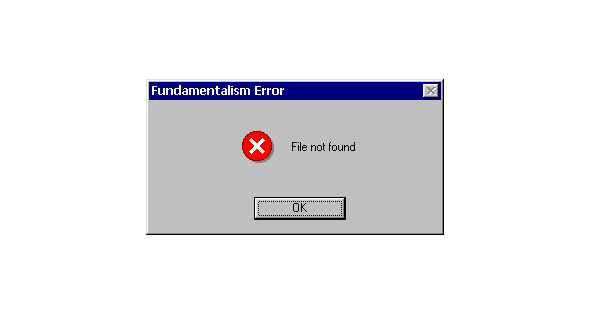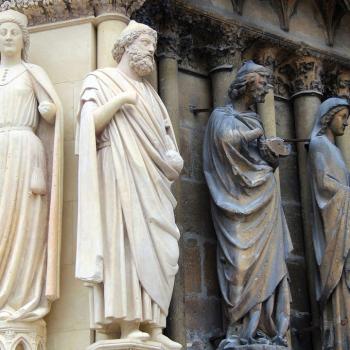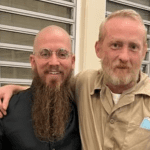
Earlier this week on the Unfundamentalist Christians Facebook Page we linked to John Shore’s post “Is hell real?” What are we, six-year-olds?
In response, several of our readers offered their thoughts on the fundamentalist understanding of hell and salvation:
Ryan J.: They say if I don’t believe in it [hell] or don’t believe it’s eternal, that apparently I’m going to go there.
Stacey N.: That is something I honestly don’t get. It’s like, you can tell someone what you believe — that you’ve done the Sinner’s Prayer thing, you’ve been down the Roman Road, but somehow, if you’ve poured over scripture and don’t think your friends who haven’t are going to BURN FOREVER — I guess that means you’ve “lost your salvation” or never had it and jumping through the right hoops means nothing?
And then our Social Media Manager, Christy Caine, added her own brilliant breakdown of the fundamentalist mindset:
It doesn’t make sense, this paradox that you point out. But they refuse to acknowledge the paradox and as other intelligent people have made the point: you cannot remove by logic ideas that were not placed there by it.
Fundamentalists and many (most?) conservative religious people hold a binary worldview: black and white thinking, this or that (but never both), all or nothing, there is no gray.
So, even though they can say with confidence “in order to become a Christian you need to do X, and you’ve done X,” another part of their belief is that Christians have to believe the Bible is the inerrant word of God and if you reject any part of (their interpretation of) scripture, then you reject the whole thing.
When you point out this contradiction to them, in their binary worldview, the cognitive dissonance does not compute. They get flustered and end the conversation, because clearly you are trying to trick them and only people influenced by the devil would try to confuse them like that.
These folks cognitively can’t handle paradox, they go straight to “File not found.”
And rather than do the difficult mental work of trying to sort through things that don’t make sense, they insulate themselves from the discomfort of challenging their deeply held notions which are so intimately tied to their sense of self and who they are — they avoid thinking about it at all.
It is an ego/psyche self-protective mechanism, and I’ve seen them do it over and over and over again. It is the beauty of psychology that it works, and one can see the evidence of it all around. The concrete thinking and the binary worldview are integral parts of the conservative/fundamentalist mindset, and without effort on the individual’s part to challenge those ways of thinking that thinking will never change.
These same folks also often shun higher education and choose to surround themselves with like-minded individuals, cutting off those with whom they disagree. This worldview is taught, learned and handed down generation after generation, and, for them, it represents the only possible reality. There is no other way of seeing the world because “How could there be?”
For those who have been able to exit this cycle, we see clearly how this tribalist worldview threatens the very fabric of the country.
Christy’s analysis brings to mind the words of M. Scott Peck, who offers a way out of that cycle in The Road Less Traveled:
To develop a broader vision we must be willing to forsake, to kill, our narrower vision. In the short run it is more comfortable not to do this — to stay where we are, to keep using the same microcosmic map, to avoid suffering the death of cherished notions. The road of spiritual growth, however, lies in the opposite direction. We begin by distrusting what we already believe, by actively seeking the threatening and unfamiliar, by deliberately challenging the validity of what we have previously been taught and hold dear. The path to holiness lies through questioning everything.
Sadly, the hallmark of fundamentalism is to question virtually nothing about that viewpoint, including the notion of hell as a place of eternal conscious torment for anyone who fails to embrace their narrowly defined ideology.
 Dan Wilkinson
Dan Wilkinson
Dan is the Executive Editor of the Unfundamentalist Christians blog. He is a writer, graphic designer and IT specialist. He lives in Montana, is married and has at least two cats.
















